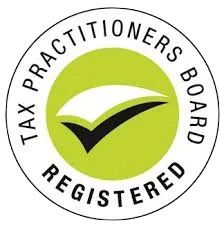
Data Security in the New Financial Year: What Business Owners Need to Know
Data Security in the New Financial Year: What Business Owners Need to Know
As the new financial year begins, data security should be at the top of every business owner's checklist.
With increasing reliance on digital tools and growing cyber threats, protecting customer, employee, and financial information is no longer just good practice — it’s a compliance requirement.
Whether you run a small business or a growing enterprise, here’s what you need to be across to stay secure and compliant in the year ahead.
1. Review Your Privacy Obligations
If your business collects personal information (including names, contact details, or payment data), you may have obligations under the Privacy Act 1988. This applies to most businesses turning over $3 million or more annually, but even smaller businesses may be subject to these laws depending on their activities.
Ensure you have:
A clear and accessible Privacy Policy
Consent mechanisms for collecting and using data
Secure systems to store and dispose of personal information
2. Stay on Top of Cybersecurity Practices
Cyberattacks are growing more sophisticated, and small businesses are often targeted due to weaker defences. Key actions include:
Updating software regularly to patch vulnerabilities
Using multi-factor authentication (MFA) for all accounts
Backing up data regularly, and storing backups securely
Training staff on phishing scams and safe online behaviour
3. Secure Financial and Client Data
If you store or process sensitive financial or client information — such as payroll, invoices, or tax records — this data must be handled with care. Use secure accounting software, restrict access only to necessary team members, and review who has login credentials to cloud-based platforms.
4. Prepare for a Data Breach
Under the Notifiable Data Breaches scheme, eligible businesses must report serious data breaches to the Office of the Australian Information Commissioner (OAIC) and affected individuals. Make sure your team knows what to do if data is lost, leaked, or accessed without authorisation.
5. Schedule a Security Audit
The start of the financial year is an ideal time to audit your data security practices. Whether it’s reviewing internal processes or consulting an IT professional, taking a proactive approach can save you from costly disruptions or regulatory penalties.
Data security isn’t just an IT issue; it’s a business responsibility.
By investing time now to assess and strengthen your protections, you can stay compliant, build customer trust, and confidently focus on growing your business this financial year.









